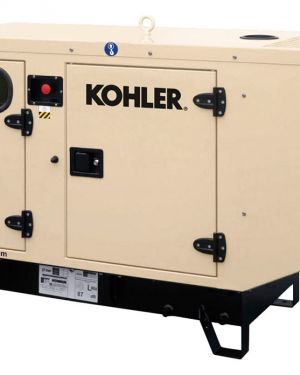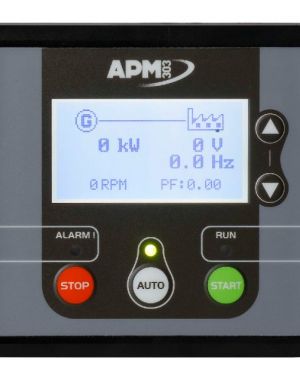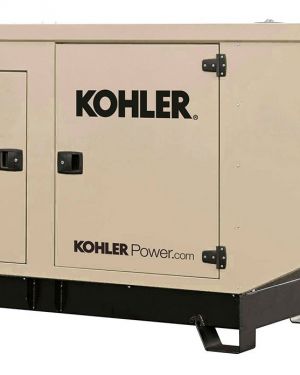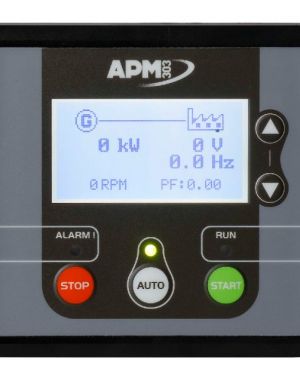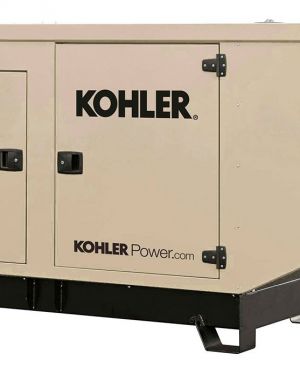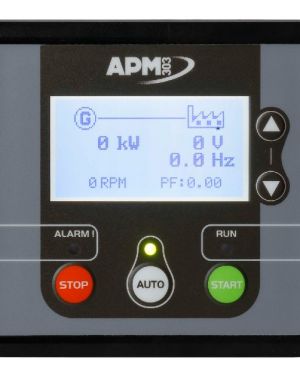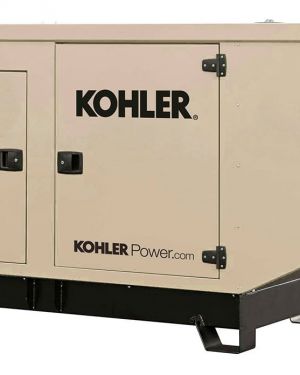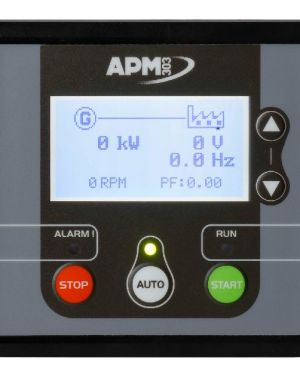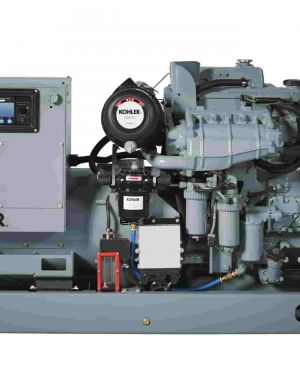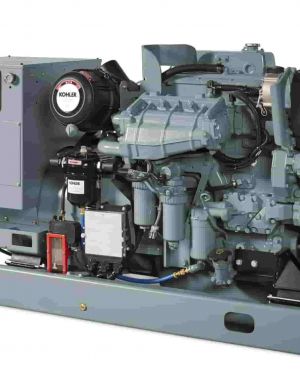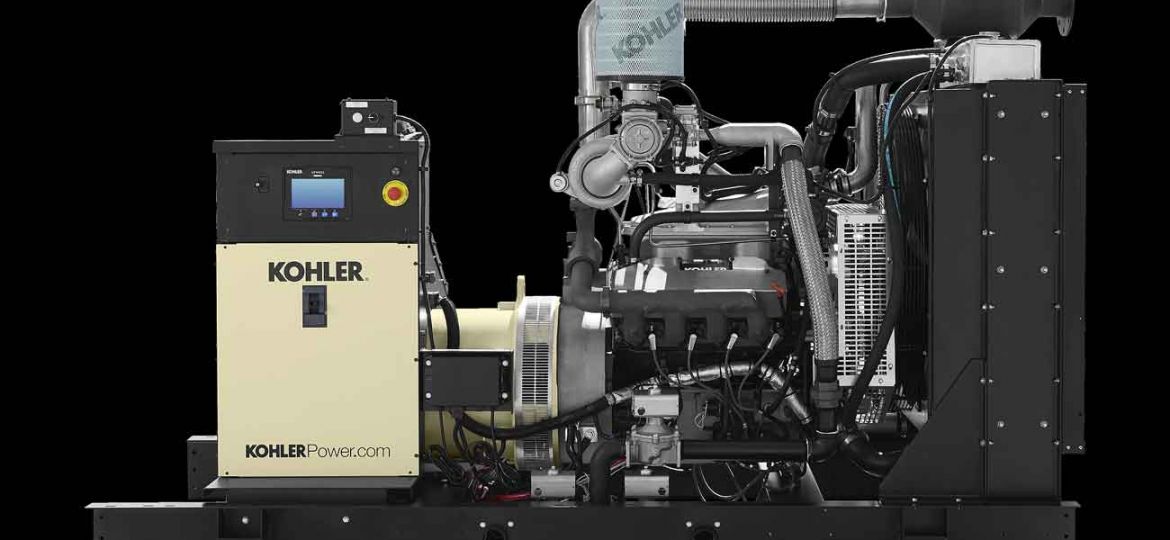
When clients approach the Brags & Hayes Generators customer service team seeking advice to help them select from the vast range of generators we offer, we realize that there is a great need for useful information that can help the customers make an informed decision as to which generator best meets their needs. Previously in our informative articles we analysed the criteria recommended for the purchase of home generators (A GUIDE FOR UNDERSTANDING THE FUNCTIONS OF GENERATOR FOR HOME), industrial generators (WHAT IS AN INDUSTRIAL GENERATOR? AND WHEN DO I NEED ONE?) and mobile generators (WHAT IS A MOBILE GENERATOR AND HOW DO I USE IT?) This time we will take a look at the purchase criteria for commercial generators.
The objective of this article is to simplify the search for the perfect commercial generator for you and to guide you through your buying process.

Few things are worse for business than missed opportunities or a closed up shop. If your business is closed, potential or existing customers look for an opportunity elsewhere, most likely they will check their options with your competitor because your door is closed. When you have no electricity, how do you keep food refrigerated or frozen?
Successful business owners have a crisis recovery plan. This type of plan covers what you’ll do when the power goes out, including having a backup commercial generator and necessary fuel on hand.
A commercial generator keeps the door open and the business running as usual during a power outage. The ability to provide essential supplies and services or to continue business as usual makes the difference between staying in business or going out of business.
While prolonged power outages at home can be a nuisance, power outages in business can present devastating financial and contractual liabilities. Even more so if we refer to a business that serves the public. In the past, when businesses did not base their full strategy on the use of technology, it was possible to overcome an interruption in your business due to lack of energy. Today, however, when the businesses rely heavily on the use of tech for all parts of their business operations, from keeping their lights on to managing their stock or accounting in a computer software, having an uninterrupted flow of energy to keep it all going is a must. So since a blackout is simply not an option for businesses today, then a commercial generator, also built for industrial settings, is an essential investment. These units are large, heavy-duty designed and built stationary systems that are motor-driven and generate single-phase or three-phase power. In other words, large amounts of power.
The most convenient installation for a commercial generator is to install it in conjunction with an automatic transfer switch. This feature allows the power to come on immediately after the power fails. This type of installation allows continuity in the operation of your establishment in the event of an interruption of the electricity supply from the public network and in doing so save your business from potentially large losses.
Why is it important to select the correct size for my commercial generator?
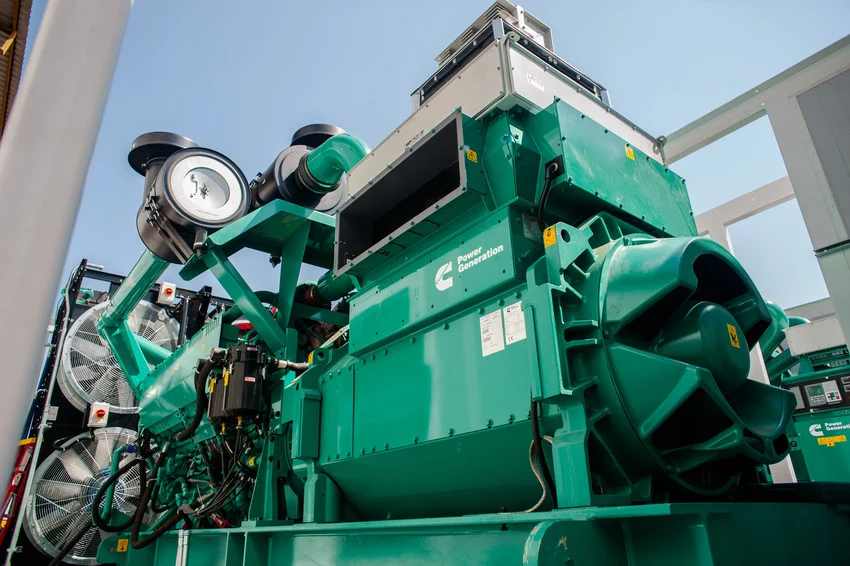
Purchasing a commercial generator is a considerable investment for any company. In addition to the purchase price, installation costs must be considered, which can often be similar to the cost of the generator.
Buying a commercial generator that is too small for your needs can compromise the life of your investment. Buying a commercial generator that is too large for your requirement is not the most efficient from investment either. The point is to find the right fit for your needs and thus increase the efficiency level of your commercial generator. In the case of diesel generators, too large can also mean that the engine never reaches the optimum temperature for clean/green operation. Eventually, a large diesel generator requires additional maintenance costs, which must be taken into account before purchase.
One of the most important decisions to make is the rated capacity and available starting watts, key for powering large motors that you might be using in your business, such as refrigeration, air conditioning and other cooling systems needed in server maintenance.
For all of the above, choosing the ideal commercial generator for your needs is your goal.
What variables should you consider when selecting the size of a commercial generator?
It is vital to consider several variables below that have a significant influence on your total power requirements, affecting the size required for a commercial generator and its ability to keep your business operations stable during power outages.
Brownouts: When your electric motors resume, after your generator switches on, there will be a brownout as the motors draw more current. In a regular state, you don’t want a voltage drop of 15 percent or more, as you may risk damaging both your commercial generator and the equipment it powers. Also, with that high voltage drop, your generator doesn’t have the surge capacity to manage your total power requirements.
Phase power: Another factor to take into account is the single-phase or three-phase power. While both have its benefits, they are ideal for different applications. Small retail businesses, for example, can safely rely on a single-phase power generator to power their store because it’s suitable for smaller applications and doesn’t deliver power at a constant rate. Large to huge commercial areas require a three-phase power generator due to their high power loads that demand a continuous flow of energy.
NEC Requirements: It is essential to think about your company’s compliance with the National Electrical Code (NEC) standards.
Frequency: You must know what power frequency requirement (60 Hz or 50 Hz) your business infrastructure needs. In the United States we use 60Hz, but this characteristic changes from country to country and the commercial generator you purchase must meet the power supply specification that fits your infrastructure.
Load: You must document in detail all the infrastructure that your commercial generator needs to be fit for during a power outage. For this purpose, you must add up the nominal consumption of all your equipment, since the idea is that your business runs as usual during electrical contingency and that you continue serving your customers. We will look at the total consumption number again later in this article. You need to estimate the full load capacity of your business so you can select the right unit. When sizing a generator for commercial use, please refer to full load current measurements at the service panel during its peak usage. In case you are not trained to work with electricity, we recommend to hire a professional for the task.
How many phases do I NEED for my commercial generator?

There are electrical installations that work with single-phase power and electrical installations that work with three-phase power. Most homes, farms, and many small businesses use single phase current, which works great for small appliances and motors up to about 5 horsepower.
The electric utility company produces current that travels through three separate transmission wires. The current in each wire is called the phase. This is called three-phase current and it is the standard current generated by all electric utility companies in North America and many other countries.
Unlike single-phase installations, three-phase power is suitable for larger motors in manufacturing, some warehouses and restaurants, manufacturing facilities, and large retail stores. Large apartment buildings often use 120/208 volt three-phase power as well.
Large 3-phase motors are very efficient and are often the only option when a motor over 10 horsepower is required. Many large commercial and industrial operations use a three-phase supply for all of their power needs. This differs from residential use, where only a single phase of the three current phases is used.
SINGLE-PHASE COMMERCIAL GENERATORS
The standby generator for a small business must supply the same type of current that the utility company supplies to a home and must closely match the current in voltage and number of phases supplied. For homes and most small businesses, this means 120- and 240-volt single-phase power. The generator will be connected to the house using four wires: two “line” wires that carry current, a third wire called the neutral that is used in conjunction with any of the “line” wires to provide 120 volts, and a ground wire for safety.
THREE-PHASE COMMERCIAL GENERATORS
Larger commercial operations, manufacturing facilities, and some farms require three-phase power. Large motors are often used for commercial refrigeration, air cooling and handling, and to operate heavy machines. Three-phase generators are the best choice for these manufacturing and commercial applications, as they provide the type of current needed to run the large motors.
Some businesses may require voltages higher than 240 or 120 volts, and some three-phase standby generators are capable of supplying higher voltages. Some installations will need transformers and other equipment to change the voltage based on the requirements of the installation.
Three-phase generators supply power with three wires that carry the three-phase current, a fourth neutral wire, and a ground wire. Many code jurisdictions require an engineering plan for commercial applications before permits are issued and some also require engineer supervision during installation.
Thank you!
We will contact you soon.
Which commercial generator is better, Liquid Cooled or Air Cooled?
Liquid-cooled engines can provide enough power for retail, manufacturing, agricultural, and office applications. On the other hand, small businesses may not use as much energy or have the space needed for a large generator setup. In such case air-cooled generators are a better option to provide the power and they fit into tight spaces.
A liquid-cooled generator has a water pump, radiator, and fan to cool the engine similar to how most cars use a radiator and antifreeze. Liquid cooling is very efficient and works better than air cooling in hot climates, especially in the desert.
Air-cooled generators have a fan that blows air over the engine to remove heat. This works well on smaller generators up to 24kW. However, in places where the temperature regularly rises above 100-110 degrees Fahrenheit, air-cooled generators may not cool efficiently and may overheat, resulting in automatic shutdown.
Consider several factors when choosing between an air-cooled or liquid-cooled generator. If your power requirements exceed air-cooled capacity, then a liquid-cooled generator is surely the best option. The space between the generator and nearby structures is another consideration. Some commercial liquid-cooled generators require five feet between the generator and the building. Most air-cooled models only need 18 inches.
The cost difference needs to be evaluated. An air-cooled model rated for commercial use will cost less to install, but the rated capacity must meet the needs of the business or the generator will not supply enough power during a blackout.
However, you should only buy what your business requires. There will always be an option and the right fit for you in terms of the cost of purchase, installation and maintenance of the type of commercial generator that you buy.
Which fuel is best for a commercial generator?
Diesel, natural gas, or propane (LPG) power most commercial standby generators. Each has its advantages and disadvantages. The most compelling reason to choose one over the other is availability. Natural gas is available in most communities and provides a virtually unlimited supply of fuel. Propane is the preferred fuel in rural areas where natural gas is not available. It is stored in large tanks on site and delivered by local liquid propane dealers.
Air-cooled generators that run on natural gas and propane may be rated lower on natural gas and higher on propane.
Engines that run on diesel fuel have a reputation for reliability. Diesel fuel costs more than natural gas or propane. During extended outages lasting for extended amount of hours, the generator owner/operator should schedule regular fuel deliveries with a local supplier.
As you can see, the question as to which type of fuel to use for your commercial generator is not a trivial issue, however, as we mentioned above, the first variable to consider is the regular availability of fuel before purchasing your generator.
SKU: XM-K009UMIV
SKU: XM-J080UIVN
SKU: XM-J060UMIVN
SKU: XM-J060UIVN
IS The fuel tank an important variable for my commercial generator?
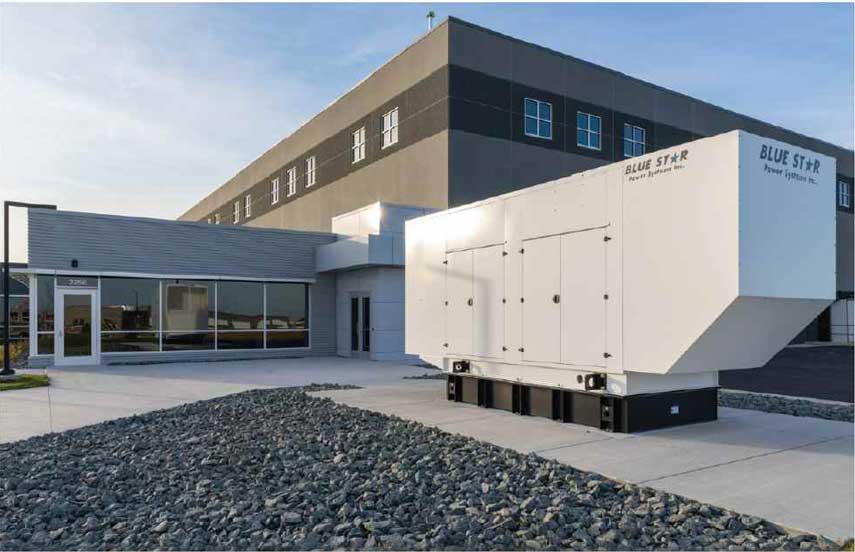
YES! It is crucial.
If you select a natural gas generator because the service is available in the location where your commercial generator is used, you will not have to worry about the fuel tank or its size.
But if you do not have natural gas service in your area, then the size of the fuel tank will determine the level of autonomy for your business and its operations over time in an event of electricity outage.
What do we recommend? Based on recent history and future expectations of power outages, define how much independence your business requires. If you have just moved and are not familiar with the area, where you have newly installed your business, talk to the neighbours. Surely they will be able to share with you their experience in relation to power outages and their duration in the area. Based on this information, add a factor of 10-20% to define the autonomy that your commercial generator requires in hours. That will determine the size of the fuel tank you need.
How to calculate the size of a commercial generator
There are 4 methods used in the industry to determine the size of your commercial generator. You can use one or a combination of methods to ensure you are making the right purchase.
1. Full load capacity per measure.
Calculate the required generator capacity by taking full load current (amperage) measurements during a time of maximum usage at the service panel.
Use a clamp ammeter on each leg of electrical service and add the measurements. This provides the total amps used by the facility.
Divide the total amps by three for three-phase current and two for single-phase current. Then multiply the result by the supply voltage and again by 1,000 for the Kilowatts (kW) required.
To obtain the Kilowatts at Full Load, the power in kilowatts used by each emergency security system according to articles 700, 701, 702 and 708 of the NEC is added.
Full Load Kilowatts = Total Amps x Supply Voltage / 1,000.
Reserve Capacity = Kilowatts at full load x 0.35.
Then, the commercial generator that you need is:
Generator size = Full Load Kilowatts + Reserve Capacity.
2. Historical full load capacity.
Check utility bills to see what your maximum energy usage was in recent history (last 12 months).
Service providers usually include the maximum demand in their monthly bill.
Analyze energy use over the previous year to find the highest peak demand, then add 35 percent for reserve capacity.
3. Full load capacity with extensive use of one motor.
Find the starting current for the largest motor that turns on and off at your facility and multiply it by the voltage for the number of watts required.
For all other loads, multiply current times voltage for watts.
Add up the watts required for the largest motor and all remaining loads for total power and multiply by 1,000 for kilowatts.
Add 35 percent for reserve/overload capacity and size the generator accordingly.
4. Square footage measurement.
The square foot sizing method is most often used in retail applications such as supermarkets, restaurants, convenience stores, and other commercial applications. Use the following calculations to determine the size of the generator.
Retail application: 50 kilowatts + 10 watts per square foot.
Other commercial application: 50 kilowatts + 5 watts per square foot.
At Brags & Hayes we guarantee you the best prices on the market, the best pre-sale and the best after-sale service, so that your energy investment operates optimally over time. Remember, it’s not simply buying the generator, what truly matters is that you buy what you need for your present and future needs.
If you are looking to buy an excellent commercial generator for your business, at the best market price and with the best technical support, here is a list of the commercial generators available in our web store!
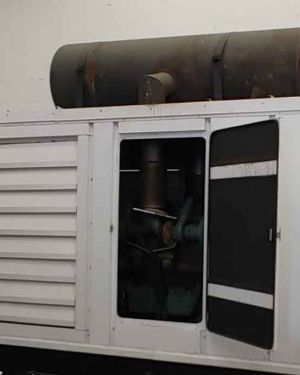
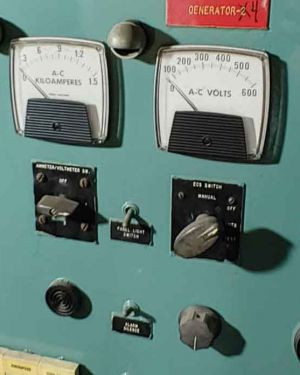
SKU: 99E0ZCJ-CP1-3PH_208
SKU: 80EOZCJ-CP1-3PH_208
SKU: 80EFOZCJ-CP1-3PH_400


